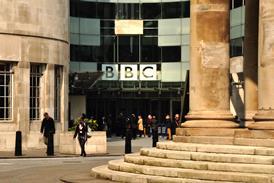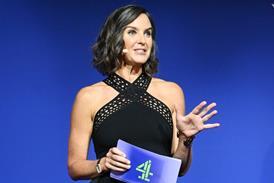Well blow me down with a feather. It turns out that, in the last ten years, Freeview is the technology that has had the biggest impact on the way we watch television.
Free channels, decent pictures, cheap box. Everyone's a winner. And in case you didn't believe it before, a survey by Deloitte/YouGov on behalf of the Media Guardian Edinburgh International Television Festival says so.
Of the 2,046 viewers polled, 35 per cent picked Freeview as their most important TV innovation over the last decade, closely followed by PVRs at 22 per cent.
Perhaps worryingly for some segments of the industry, Mobile TV received no votes from consumers. Not one.
The bad news
But this is just the latest blow for this (and I use the term loosely) “burgeoning” sector.
Last month the BBC revealed that its trials with Orange and T-Mobile hadn't exactly been a roaring success.
And back in February, the closure of the BT Movio/Virgin Media service was hardly a ringing endorsement.
Scouring the web you find plenty of people quick to knock the idea of watching broadcast television on a mobile phone. One online debate that I stumbled across had this comment from a reader:
Mobile TV won't exist soon. Once the web gets fully functional on mobiles, and battery life improves sufficiently, then mobile TV will simply be TV over the Internet. Whether video sites, catch-up services of live streaming content, there is already a fantastic service over the Internet. Mobile-only TV doesn't stand a chance...
That person makes a valid point. There appears to be two clear problems:
One, not enough people want to watch TV on their mobile. And two, those that do want to, simply aren't willing to pay for it. Which is far from ideal.
The good news
If we can look at what is happening in Germany, there may be a glimmer of hope.
In that country, the mobile operators (Vodafone, T-Mobile, and O2) lost out in the DVB-H licensing awards to the Mobile 3.0 consortium. The mobile operators' competitive response has been to launch DVB-T handsets from LG, Giga, Samsung and other vendors offering free DTT services.
According to former DTG director general Dermot Nolan, the uptake has been good.
It appears that once the pay barrier is removed, more people will watch. Much like Freeview. Strange that.
So, potentially, the key to getting people to watch TV on their mobile is to push free-to-air terrestrial mobile.
I recently spoke with a company, Telegent, that makes a mobile phone TV chip that receives free-to-air terrestrial television standards PAL and DVB-T as well as digital mobile TV standard DVB-H. They're pitching for handset manufacturers to buy Telegent chips and include them in their phones. One Chinese phone maker is doing this already, with ZTE committing to the technology.
With an influx of UK handsets with DVB-T chips - and assuming that the Germans are a decent benchmark - there might be a market for mobile television after all.
One stumbling block may be that DVB-T is not great when the signal is weak. But, according to Nolan, “the switch to high-power DTT that is happening as part of switchover means that signal power is increasing tenfold.”
And if the free model works, maybe the paid-for stuff can be bolted on afterwards, rather than trying to get people to pay first for something that they're not sure they want.
If these services are launched here, maybe the next time the Edinburgh people do a survey about technology innovation, someone might vote for mobile TV. You never know.




























No comments yet